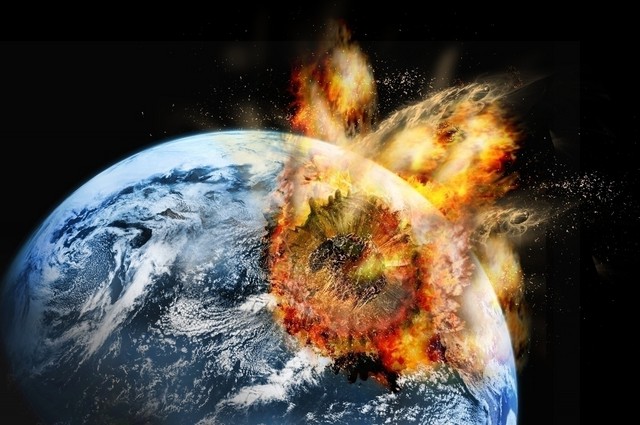Paradox 1: Development through under development
1)Accumulation through Dispossession ( Harvey, 2003)
Accumulation by dispossession is a concept that defines the neoliberal capitalist policies in western industrialized countries from the 1970s to that of the present. This results in a centralization of wealth and power in the hands on an elite; this is done by dispossessing the public of their wealth and land. These neoliberal policies are guided by privatization, financialization, management and manipulation of crises and state redistribution of wealth
2) Development in one place means under-development in another ( Frank, 1995)
Economic globalization is the principle growing international and world inequality as mobile capital relocates jobs and production in the world economy. Trade intensifies international competitive pressures and global finances constraints the welfare and redistributive capacities of state. This increasing segmentation of the global workforce into winners and losers from productive and financial integration; growing marginalization, exclusion and impoverishment losers both across and within states, the erosion of social solidarity as welfare regimes of protecting the most vulnerable and the intensification of economic polarization. This segmentation and exclusion between rich and poor states but within them. The world is divided through social architecture that divides humanity into elites, the marginalized and the impoverished- growing gap..
3) Transfer of economic surplus through debt peonage ( Hoogvelt, 2001)
In the Globalization and Postcolonial World establishes that the world is under the influence of neocolonialist influence. Globalization has been associated with patterns of distorted development as a consequences of selective inclusion of the global economy. Global economic governance that can regulate global markets and redistribute opportunities and wealth. This by providing loans for developing countries for the extraction of local resources for development, hence resulting in a chain of debt peonage.
4)Agricultural modernization through global de-peasantization ( Arghi,1995)
Global depeasantization is a concept where farmers who were involved in agriculture with direct access to the production of their means of subsistence became rapid and massively concentrated in urban locations. Based on history, this is the first period where peasantry became a minority, in both industrially developed and third-world countries. This is manifest by capital accumulation in the country-side result in de peasantization, large-scale commercial faming and rearrangement to international agribusinesses, which leads to equal distribution of supply of food in markets, the loss of power of the masses and the rise in global food prices.
5) Urbanization through ” planet of the slums” ( Davis, 2006)
Based on the report of United Nations, almost 1 billion people live in slums of the cities in the South. This book hence explores the future of a radically unequal and explosively unstable urban world. Urbanization that results from disconnection from industrialization through economic growth. He shows that a wide vast of humanity that live in slums and being exiled from the world economy.
Paradox 2: Unequal ecological exchange
- Northern over-consumption generates ecological damage in the south.
Blue revolution
Blue Revolution is the emergence of aquaculture that results in highly productive agricultural fishing activity. As the developed countries gain economic power, they consumer more fish. The average consumption per person doubled, hence resulting over exploitation of wild fisheries.
Climate Change
The poor communities are suffering from disastrous climatic change, which result from the over consumption of the developed countries. Currently there are 20 million refugees that has been displaced from environmental disasters, and these refugees are from developing countries.
Paradox 3: Integration through disconnection and fragmentation
- Orientalism: Orient Vs Occident
The Orient means the East, while the Occident refers to the West ( Western Europe). This results in a clash of civilizations of ideologies of the East and West. The west are term as more developed and have higher economic capacity, hence dominating world markets.
- North and South Divide
The North and South divide is considered a socio-economic and political divide. The Global North include : North America, Western Europe, and developed parts of East Asia; while the Global South is made up of Africa, Latin America, and developing Asia. The North is where most of the world’s economic resources and power is concentrated.
- Three world: First , Second, Third World
Development of globalized financial markets have resulted in differentiation of ranks of economy, which results in segmentation of first, second, third world.
First world : Developed, capitalist industrial countries ( America, Western Europe, Japan)
Second World: Communist -socialist industrial states ( Russia, Eastern Europe, China )
Third World: Developing countries ( Africa, Asia and Latin America)
- Actual vs constructed Realities
The realities of the world may not be the truth or a reflection of reality, but rather constructed through the market elitist to fool the masses. This results in a concentration and consolidation of power of the elites.
Paradox 4: Accumulation through by dispossession ( Harvey, 2005)
- Mechanism of corporation, commoditization and privatization
Public property has been converted to private property through displacing and disposing the wealth of the common masses.
- Finanicialization ( Speculative and Predatory style ): Credit and Stock manipulation
Markets that concentrates on credit and stock manipulation. That often have speculative and predatory styles.
- Management and Manipulation of crisis
IMP taking control over the loans, such as giving out loans and debts to developing nations, and by offering bailouts for large multinational corporations in time of financial crises
- State redistribution
This is done by privatizing public enterprise, slashing social subsidies and controlling sustainability research
Paradox 5: Neoliberalism promises a secured world, but produced a Risk Society ( Ulrich Brich)
Modern societies are fraught with risk, uncertainties and insecurities. Modernization will result in hazards and insecurities that is created by human decisions and actions. Although knowledge and technology is constantly ahead, the masses are often left behind and ignorant. THis often being unable to control the technology that they dependent on.
